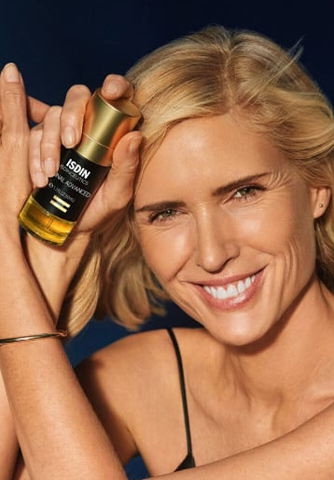Hey, how’s your skin been feeling lately?
Tight and dry? More sensitive than usual? Did that new product seem to make you break out?
If these signs are on your mind, then there’s a chance that your skin’s protective barrier is damaged. But no worries — there’s a simple solution.
First, we’re sharing everything you need to know about your skin barrier, including how this natural shield defends your skin from daily aggressors. Then, learn how to restore your skin barrier and keep your skin in tip-top shape, whatever the season.
Table of Contents
What is the skin barrier?
Understanding the layers of your skin is a great place to start. The top, middle and bottom layers all have different functions. The top layer of your skin is called the epidermis and is also where your skin barrier, or moisture barrier, is found.
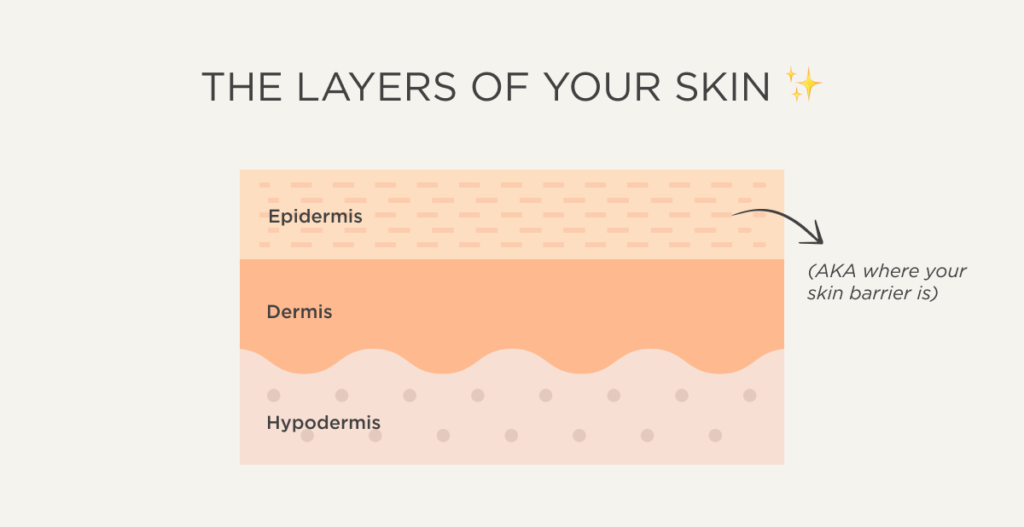
So what’s so special about the skin barrier? This brick-and-mortar-like structure is your skin’s first line of defense against the outside world. The bricks (cells) bind together with mortar (lipids and proteins) to create a wall (barrier). And its main job is to protect you from pathogens while balancing your skin’s moisture levels.
Basically, your skin barrier helps keep the bad stuff out (irritants, pollution) and the good stuff in (water, oils). And this is no easy feat. Think of how much your skin is exposed to every day: changes in temperature, UV radiation, and pollution. All these external factors affect your protective barrier — and can potentially damage it.
What are the signs of a healthy skin barrier?
Here’s what a happy skin barrier usually looks and feels like:
- Your skin is mostly smooth and flake-free
- Your skin feels comfortable after using gentle cleansers and products with non-active ingredients
- You don’t typically experience tightness, itchiness, or unpleasant reactions — healthy skin is calm skin
What are the symptoms of a damaged skin barrier?
Here are a few key signals that can point to a compromised barrier:
- Your skin looks and feels irritated — it’s red, tight, dry, flaky, and itchy
- Your skin starts reacting differently to your normal skincare routine all of a sudden
- You experience burning or stinging sensations even when using gentle products or products you’ve always had a good reaction to
- You start breaking out and your skin seems to get even more irritated after using acne products
Quick reminder: while this article has been medically reviewed, we’re not as savvy about what’s going on with your skin as your dermatologist. It’s always a good idea to check in with them, especially if you’re experiencing discomfort.
Factors that damage your protective barrier
So maybe you’re starting to think that your skin barrier could use some extra TLC. But, what’s got it down in the first place? Here are the most common culprits, starting with the biggest:

Moisture loss
Water loss (or Transepidermal Water Loss – TEWL) reduces the skin’s ability to store moisture, suppressing the health of your protective barrier. And once your skin is dehydrated, it’s likely to also become more sensitive or reactive.
Wondering what causes this sudden shift? Dry weather, harsh cleansers, and your skin type can all be major factors in moisture loss.

Overdoing it
Taking care of your skin is key to a healthy, beautiful complexion. But it is possible to overdo it.
Over-exfoliation and cleansers containing surfactants can strip the outer layer of the skin of its natural oils. This leaves your skin vulnerable, hindering its ability to protect itself and eventually damaging the protective barrier.
Using certain homemade skincare recipes, harsh physical scrubs, and too many products can all potentially weaken your skin barrier.

Lifestyle factors
Taking your dream vacation next week? Got a stressful work presentation coming up? Our everyday environment can affect our skin more than we realize. These skin-affecting factors are called the exposome and include things like UV radiation, temperature, stress, and pollution.
And unfortunately, all of these daily factors can mess with our skin barrier. One common example: experiencing dry, tight skin when winter weather rolls around. The sudden switch to dry, cold days can test our protective barrier’s strength and stir up skin reactions.
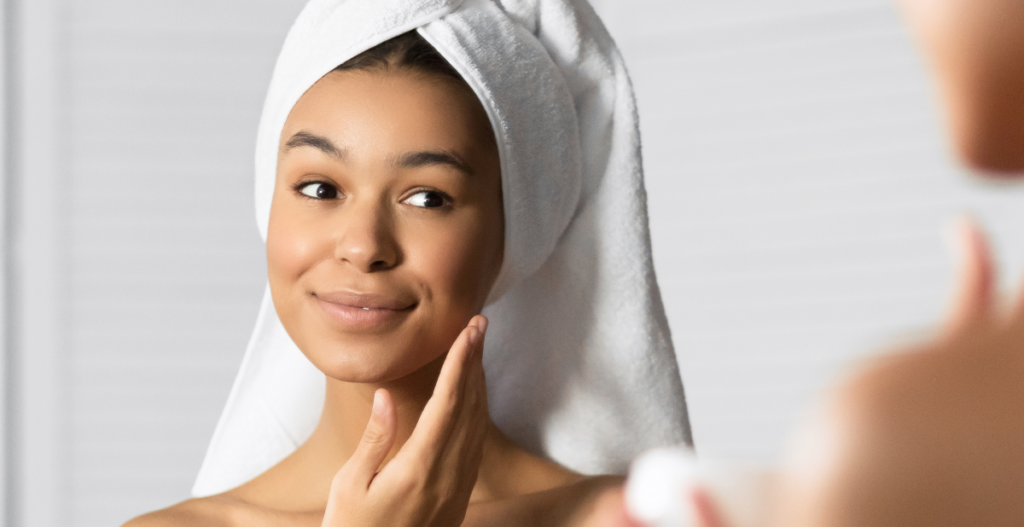
How can I help fix my skin barrier?
Good news! Even if your protective barrier is damaged, there’s a solution. And usually, it just means simplifying a few things.
Here’s how to repair your skin barrier, stat:

Rest
This goes for your skin and your schedule. On top of getting the rest your body needs to recoup, give exfoliants and potentially irritating ingredients a break too. And remember: your skin’s regeneration cycle (or turnover) takes between 21-28 days. So make sure to give your skin barrier at least a solid month’s rest for any noticeable improvements.
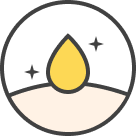
Cleanse (gently)
Some cleansers that give you that squeaky-clean feeling actually contain strong surfactants. So while they can be great at dissolving dirt and oils, they can also harm your skin barrier.
Meanwhile, oil cleansing formulas are great at gently lifting away daily grime. Cleansing oils lift away unwanted oils while leaving the good ones behind. The final result is soft, clean, glowing skin — without the potential tightness (and damage) left by harsher cleansers.
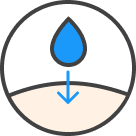
Hydrate
One of the most effective steps towards relief is to restore lost hydration — ASAP. If your skin is feeling off-kilter, it’s a good idea to add moisturizing products to your routine to help restore balance. And regular hydration helps strengthen your skin barrier and keep it healthy.

Protect
While sunscreen is always (and we mean always) important, a compromised skin barrier ups the ante. A damaged skin barrier can hinder your ability to fend off UV radiation. The result? Oxidative stress and premature photoaging. In order to best protect your skin, apply a high SPF, broad spectrum sunscreen daily.
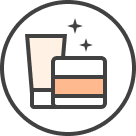
Curate
When you’re ready to jump back into a more thorough routine, start slowly. Try introducing one new skincare product at a time after checking out the ingredients list.
On that note, it’s never a good idea to mix skincare ingredients without doing your research first. Some ingredients like hyaluronic acid and bakuchiol always play nicely with others, while others like retinol or chemical exfoliants require a little more planning.
There you have it. Dry, irritated skin might just be a signal that your skin’s protective barrier could use a little attention. Help keep your skin healthy year-round by taking care of your skin barrier with these tips. Comfortable, beautiful skin to follow!
References: Elias, P.M., Wakefield, J.S. (2010). Skin Barrier Function. In: Krutmann, J., Humbert, P. (eds) Nutrition for Healthy Skin. Springer, Berlin, Heidelberg. https://doi.org/10.1007/978-3-642-12264-4_4 Rawlings, A.V. and Harding, C.R. (2004), Moisturization and skin barrier function. Dermatologic Therapy, 17: 43-48. https://doi.org/10.1111/j.1396-0296.2004.04S1005.x




